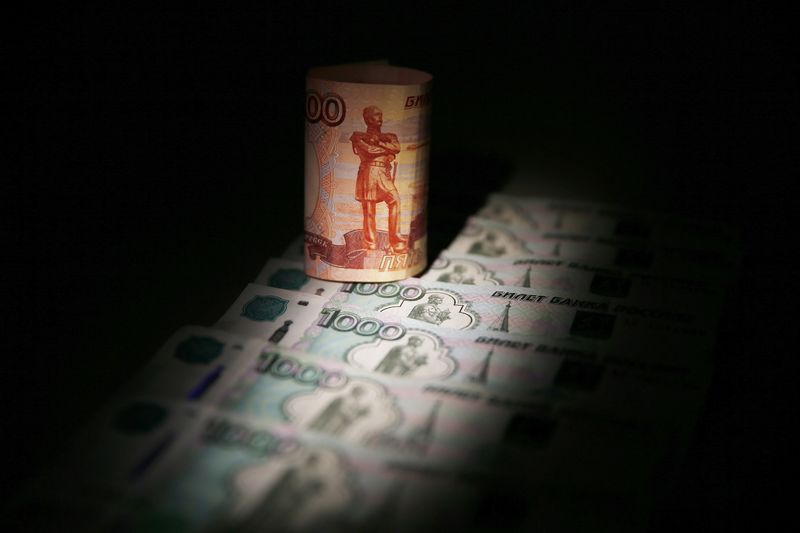By Darya Korsunskaya and Elena Fabrichnaya
MOSCOW (Reuters) - Russian authorities put pressure on large state-owned exporters on Tuesday to sell dollars to arrest the rouble's slide and stem fears of a repeat of the galloping inflation and mass protests that characterised Russia's 1998 financial crisis.
Analysts saw the measures as a softer version of the capital controls that President Vladimir Putin has repeatedly vowed he will not resort to.
Putin, who has ruled Russia since 2000, prides himself on achieving higher living standards for Russians, who follow hard currency movements closely since hyperinflation destroyed their savings after the collapse of the Soviet Union.
The rouble plunged to an all-time low in mid-December on the back of lower oil prices and Western sanctions, which make it almost impossible for Russian firms to borrow from the West.
Former finance minister Alexei Kudrin warned on Monday that Russia was heading towards a full-fledged crisis.
The rouble fell to as low as 80 per dollar this month, from the average of 30-35 seen in the first half of the year, but has since recovered to trade as high as 53 to the dollar on Tuesday.
The government has asked top state exporters to sell part of their hard currency revenues on the market, a government source told Reuters on Tuesday. The central bank said it was conducting consultations with large exporters with the aim of stabilising the currency market.
"Of course, the companies are free to hold on to the hard currency, they are also free to get involved in speculative operations. But then we reserve the right not to help them if and when they hit tough times," said a government source who asked not to be named.
He said companies that needed to repay large foreign debts could continue to accumulate hard currency.
"If exporters are told not to increase their hard currency positions, it can be viewed as an unofficial reintroduction of capital controls," said Vladimir Osakovsky from Bank of America Merrill Lynch.
He said if the measures resulted in sales of around $1 billion a day on the forex market, it would be enough to calm the panic of the last few weeks and help stabilise the market.
The rouble rose to a two-week high on Tuesday, partially on the back of the government orders and partially thanks to regular tax payments, which require exporters to sell dollars for roubles. The tax payments are likely to peak around Dec. 25.
The newspaper Kommersant said, citing unnamed sources, that the companies asked by the government to sell hard currency included the gas firm Gazprom (MM:GAZP), the oil firms Rosneft (MM:ROSN) and Zarubezhneft, and the diamond producers Alrosa and Kristall.
Kristall confirmed to Reuters that it had received the instruction. One other company from the list also confirmed the instructions, but asked not to be named.
Shortly after the market opening, the rouble hit 52.88 to the dollar, its strongest level since Dec. 8.

By 1022 GMT, it had fallen back but was still was up 1.9 percent at 54.58
(Reporting by Vladimir Abramov and Polina Devitt; Writing by Dmitry Zhdannikov; Editing by Kevin Liffey)